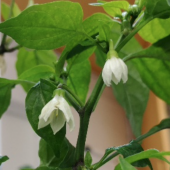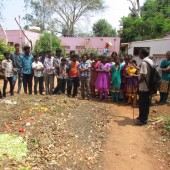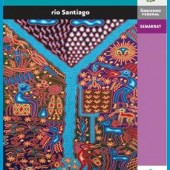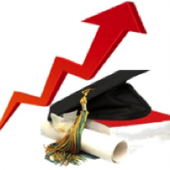
Abstract: To successfully implement the UN’s Sustainable Development Goals (SDGs), we must encourage all citizens to work together to enable a good life not only for us now but future generations too. In this article, we present an experiment carried out in autumn 2020 on a smart aeroponic garden. The goal of the experiment was to learn more about aeroponic cultivation and IoT technology and to acquire the know-how that would enable the participants to influence the environmental burden of food production. Our experiment showed that technology could also be used to introduce sustainable development themes to reach those target groups whose attention could not be attracted through other methods.
Continue Reading
Abstract: This paper describes the outcomes of a game designed to teach advanced leadership skills, specifically influence and negotiation strategies, to current and aspiring sustainability professionals at Virginia Tech’s Center for Leadership in Global Sustainability. In the game, students assume the role of a key stakeholder and practice principle-based negotiation, conflict management, consensus building, and related influence skills needed by professionals working on complex sustainable development challenges such as the transboundary resource issues
regarding hydropower and watershed management. We collected pre- and post- survey data to assess the effectiveness of the simulation in developing students’ negotiation and influence skills. Results suggest that the training helps students develop confidence in using influence and negotiation skills and feel more competent and better prepared to serve as leaders in the field.
Since a curriculum represents a selection of socially constructed knowledge, it should be interpreted as a stake-holder in an ideological process. It is a political issue whose forms depend, among other things, on the degree to which education systems are centralized. Today, supranational bodies can influence the curriculum, particularly within the framework of UNESCO’s implementation of the decade of Education for Sustainable Development (ESD). Consequently, examining the curricula associated with the emergence of ESD involves examining the politics underlying them, politics which are not always explicitly stated – hence the interest in the concept of a hidden curriculum. The purpose of this study is to analyze the ESD curriculum in France. To this end, we use a methodology that considers the main work conducted about ESD in the framework of French research programs and based on the concept of hidden curriculum. This requires performing a diachronic analysis of changes in curriculum choices and forms of schooling, and identifying the value system underlying those changes. We identify several of the main characteristics of those changes, including in terms of project dynamics, partnership, transdisciplinarity, the role of knowledge, the distance from practice, and the persistence of a western conception of development. We then situate the French specificities within the international context.
Continue Reading
A sustainably-minded and technology-driven 2032 scenario was created to illustrate subtle attitudes and habits of characters based upon their collegiate informal learning and leadership experiences while earning an undergraduate degree. The creative scenario suggests that, based upon findings from a SLfSD (student leaders for sustainable development) study, leadership components may be identified and cultivated through informal educational avenues (i.e. student organization involvement) to help communicate and transition others to think and act in more environmentally-minded manners. The objective of the study was to explore the leadership components (leadership roles, personal capacities, and styles) of SLfSD. Quantitative, multivariate regression analysis of purposive sampling of student attendees of the 2013 AASHE (Association for the Advancement of Sustainability in Higher Education) revealed interesting influencers of leadership styles and personal capacities, including the interaction of gender, age, ethnicity, and leadership role (aspiring vs. formal leaders). This research suggests that SLfSD possess dynamic capacities and preferences that can impact the necessity for and effectiveness of sustainability-focused programming.
Continue ReadingABSTRACT: Sustainability and sustainable development have become one of the dominant topics of discussion among individuals, institutions, companies and universities in response to any global issues with regard to climate change. Many universities including Universiti Sains Malaysia (USM) have taken the initiative to instil sustainability element in its programme offered to its prospective student. USM aims to pioneer in sustainability area and become the reference point with regard to sustainability in Malaysia. In this paper, we provide the background of our USM and its goals towards becoming the sustainability-led university in Malaysia. We also introduce the tool that we have developed to help in calculating the percentage of sustainability content in any document. We utilize the tool to help us in investigating whether sustainability element is fully instilled in Mathematics programme offered in School of Mathematics in USM. We also provide our recommendation and future works to further strengthen this study in the future.
Continue ReadingAbstract
The study assesses the extent to which curriculum of secondary schools in Tanzania addresses sustainable education through integration of environmental education. Specifically, it evaluates the subjects used to deliver environmental education in secondary school. Also the study found out perceptions, challenges, and recommendations for implementing environmental education. This research adopted a case study, qualitative approach to study the subject matter in its natural settings while making sense of the contents of the subjects and perceptions of stakeholders. Cross sectional, stratified sampling involved both students from all classes, experienced teachers in geography and biology and a head teacher as well. It was found that most environmental education competencies are delivered mainly through the geography subject, and some in biology using an integrated teaching approach. Students and teachers were fairly knowledgeable and had understanding of basic environmental issues. Main challenges facing implementation of environmental education included an integrated learning approach, inadequate knowledge on environmental education, lack of support from each other and from school administration, and cultural myths and beliefs.

India is challenged by the nexus of environmental degradation and economic growth amidst the paradoxical coexistence of poverty and affluence in their multifarious dimensions. These challenges are directly linked with the conservation and maintenance of the life supporting systems such as land, water, air, and biological diversity. The major causes of environmental degradation are population growth, industrialisation, changes in consumption patterns, and poverty threatening the dynamic equilibrium that could exist between people and ecosystems. In an effort to address these issues, environmental education for sustainable development (EESD) is emerging as an important approach to encourage students to conserve and protect the natural environment in their schools and in their neighbourhoods.
Continue ReadingPDF: BollmannandKunzandFrishknechtSpring2014 Key words: Sustainable Development, Systems Thinking, SYSDENE, multi-dimensional Learning Outcomes Learning Outcomes Enduring Understandings/Big Ideas: Before you even start with Sustainability Education, it is necessary to work on the attribution of significance of Sustainable Development (SD). Pupils, students, teachers or lecturers alike: they all need to recognize sustainability as something important and significant […]
Continue Reading
Daily news relentlessly confirms that we have not been able to find a balance between the environment, the economy, society and culture. The trend of worldwide development is increasingly far from sustainability and it seems that we cannot perceive evident and subtle interconnections required to understand the whole picture. Thus, issues such as the loss of biological diversity, weakening of cultural diversity and poverty, have usually been dealt with separately. Nevertheless, they are in fact closely connected and relevant to sustainable development. A holistic and more comprehensive approach for action at all levels is required to attain sustainability, as pointed out by the United Nations Decade of Education for Sustainable Development (2005-2014). Water can be seen as one common thread to link those issues. On the other hand, Education must be at the core of sustainable development for either to be successful. Water education is therefore a core element to achieve sustainability. Watersheds are a natural starting point for a holistic, comprehensive approach, as they can be described as a physical-biological unit, as well as a socio-economic-political unit, which can be used for planning and management of natural resources. A watershed perspective facilitates education to be locally relevant and culturally appropriate. Herein we will discuss some examples of watershed-based education in Latin America, addressed to provide a better understanding of local environmental, social, cultural and economic topics and issues from early childhood.
Continue Reading
The purpose of this qualitative case study was to examine the perceived impact of a fashion course that was reframed for sustainability using the education for sustainable development (ESD) framework. Specifically, the study explores the holistic integration of sustainability in a curriculum focused on the making and marketing material products, a seemingly counterintuitive context. Data collection included student reflective writings, focus group interviews, and a reflexive research journal kept by the researcher. ESD manifested in the student experience to the greatest degree in learning and development outcomes related to sustainability literacy and working with others. Interestingly, outcomes related to sustainability literacy were overshadowed by a substantial leap in collaborative and cooperative capacity, according to students. Notably, this case demonstrates that when sustainability is approached as a creative exercise, students take little issue with the new paradigm. This study also demonstrates how skills associated with ESD may be integrated into a course without sacrifice of course content, significantly enhancing the learning and development experience. The outcomes experienced by learners and the role ESD played in these outcomes provides important context for the integration of sustainability in a field of study preoccupied with the bottom line.
Continue Reading
PDF: Maragakis and van den Dobbelsteen Winter 2013 Abstract: The progress of sustainability within higher education has steadily increased in focus over the last decade and has increasingly become a topic of academic research. With various scholars, journals and conferences exclusively dealing with the subject, a wealth of literature has been produced on best practices, […]
Continue Reading
Teaching sustainability invariably involves teaching about energy – its use, its sources, its
environmental impacts, and its social implications. This paper explores how one renewable
energy alternative – biogas – is adapted and applied across scale and culture. Biogas is made by
capturing the methane released during anaerobic digestion of organic matter such as manure,
sewage, and food waste. In Nepal, biogas is a household scale technology used to create a
cooking fuel that replaces firewood and improves both environmental and human health. In the
United States, biogas is used as part of large-scale waste management systems for livestock,
wastewater treatment, and landfills to create electricity for on-site use and for sale into electric
grids. In Sweden, biogas is used as part of a regional effort to reduce greenhouse gas emissions
and fossil fuel usage by using locally generated biogas for district heating, electricity, and
vehicular fuel. By comparing these three cases, we gain insight into how one technology is
adapted across diverse needs and from household to regional scales in the pursuit of more
sustainable energy practices. Such an exercise can be an asset in the classroom to teach students
about the importance and relevance of place-based solutions that address diverse cultural and
economic realities.